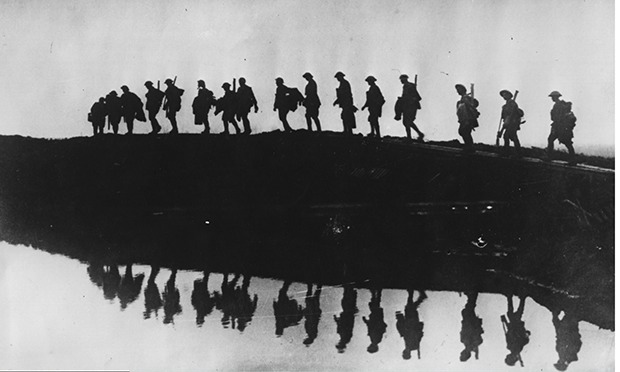Ukraine’s LIGA BiznesInform news agency asked six individuals closely involved with or monitoring the situation exactly that question given the fact that few doubt that this ceasefire like so many others will be shaky and temporary.
Boris Filatov, deputy governor of Dnepropetrovsk Oblast, says that Ukraine must dig in and re-arm, and “immediately carry out reforms” in the military. Moreover, Ukrainian officials must explain to the insurgents that “Russia does not intend to feed them or invest money in their territories.” Only Ukraine is ready to do that.
Further, he says, Ukraine’s regions must ensure that EU money comes to and through them rather than through Kyiv so that corrupt elements in the Ukrainian capital won’t be able to divert it.
In short, he says, Ukraine “has to proceed along the path of Chechnya in the Donbas” because “there is no other way out.” It must give amnesties and work down “de-separatization” just as Moscow did in Chechnya a decade ago. Ukraine must not deal with “military criminals, but for the preservation of territorial integrity, it is necessary to be able to show the local population the benefits of remaining within Ukraine.”
Andreas Umland, a German political analyst resident in Kyiv, says that it is possible the ceasefire will last a long time. During that period, he suggests, Ukraine must focus on documenting exactly what has happened and who is to blame because far too many people in Russia and the West think that what has occurred is a civil war rather than a Russian invasion.
Vadim Grib, a conflict specialist, says that the ceasefire is “without a doubt a positive step,” something that “became possible thanks to the heroic efforts of our army and self-defense fighters plus the active support of the main world leaders and our people.”
Putin obviously ordered his agents in Ukraine to agree, Grib continues, “but I would not consider this a final agreement because for that to occur, it must be with Putin and not with his puppets.” That may not happen anytime soon because Putin is “hardly satisfied” by President Petro Poroshenko’s plan.
Now is the time to talk, he continues, because “at present, [Kyiv] has some quite serious cards in its hand and Putin undoubtedly understands this.” Ukraine’s focus must be “not to surrender the Donbas and allow Putin to preserve his face before his voters.” In saying that, one isn’t talking about peace, of course.
The back and forth is “only beginning,” Grib says, and Ukraine must proceed in a way that its losses so far are “not in vain” and that “the entire world will draw a corresponding lesson having reviewed its approach to international security and the defense of countries from the actions of aggressors.”
Taras Berezovets, a political analyst, says the ceasefire was “a difficult but necessary decision,” but what is important is “not to fall under the power of illusions.” There won’t be a permanent ceasefire, the militants and Russian forces will continue to attack, and pro-Moscow forces inside Ukraine will continue their “terror against ‘enemies of the people.’”
Ukraine, he says, must use any time it has to reform its armed forces, use aid from NATO, and prepare for partisan war throughout Ukraine. Russia isn’t going to live up to the ceasefire, but Ukraine can play for time by denying the obvious even while it prepares to resist it, Berezovets says.
Such “’a ceasefire,’” he suggests, “could last for months. But during that period, “Putin will not pull his forces out of the Donbas. It is possible they will become fewer. But they will remain,” and that is something Ukraine has to focus on.
Yury Butusov, a journalist, says that Ukraine must use the ceasefire to reform its government administration, reducing bureaucracy by 20 to 40 percent and “prepare the army for war by taking into account the mistakes and experience” of recent days. It must strengthen itself because “the weaker and slower we will be [in that regard], the sooner the ceasefire will end.”
He stresses that Kyiv must not just focus on the east but on the entire country. “There need not be any special Donbas reforms. There must be reforms in Ukraine as a whole.”
And Anton Gerashchenko, an advisor to Ukraine’s interior minister, says that Ukraine “must arm themselves and create a powerful army and security system” by spending “a minimum of one-sixth and better one-fifth” of its budget on defense and security. The Interior Ministry must be “transformed into a law enforcement rather than punitive organ.”
He concludes by suggesting that the length of the ceasefire will depend on how willing Kyiv is to go along with what Putin wants. If it does, “then the ceasefire will be a long one. If not, then again there will be provocations and the seizure of our territory.”
[hr]Source: windowoneurasia.blogspot.com (with permission)








